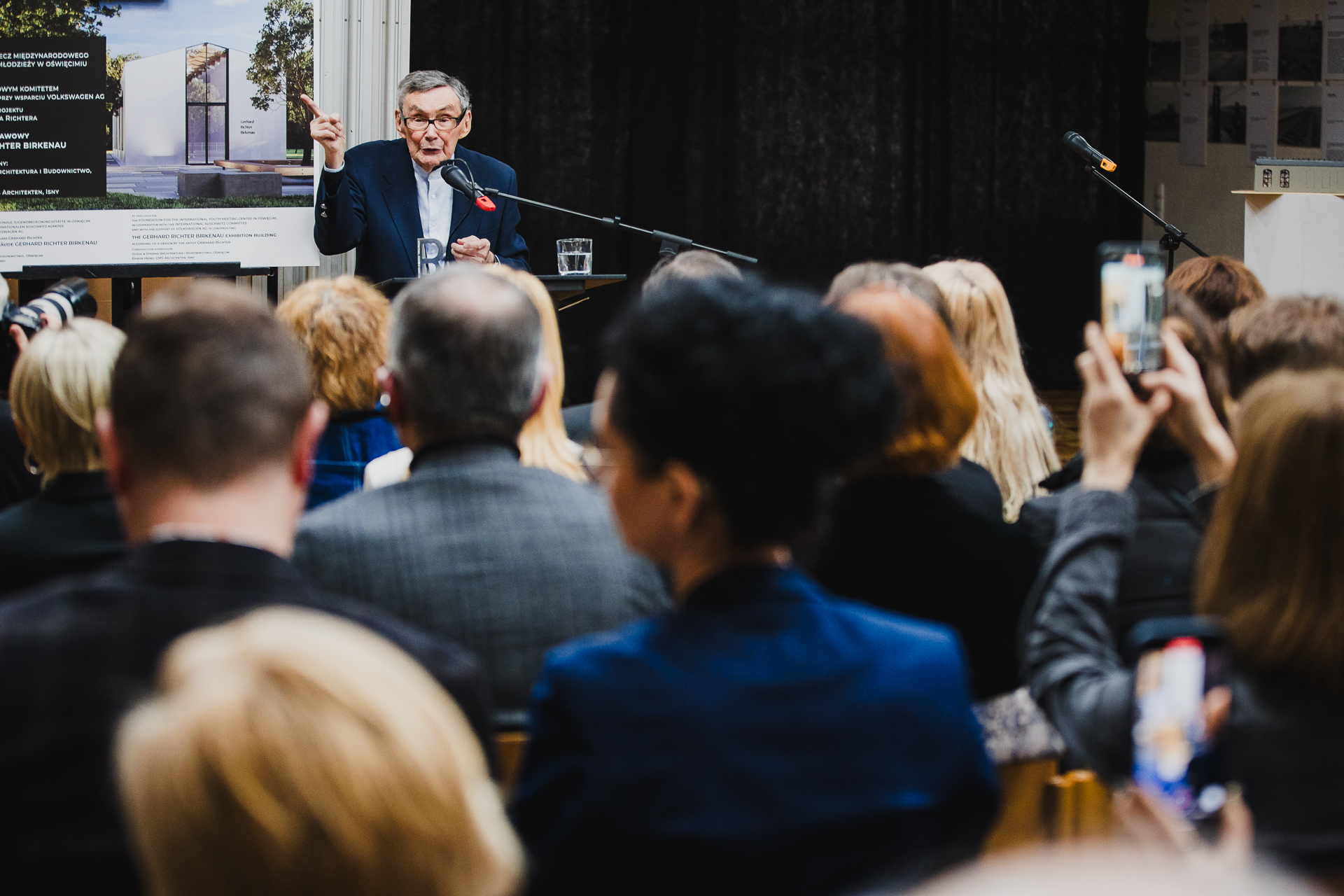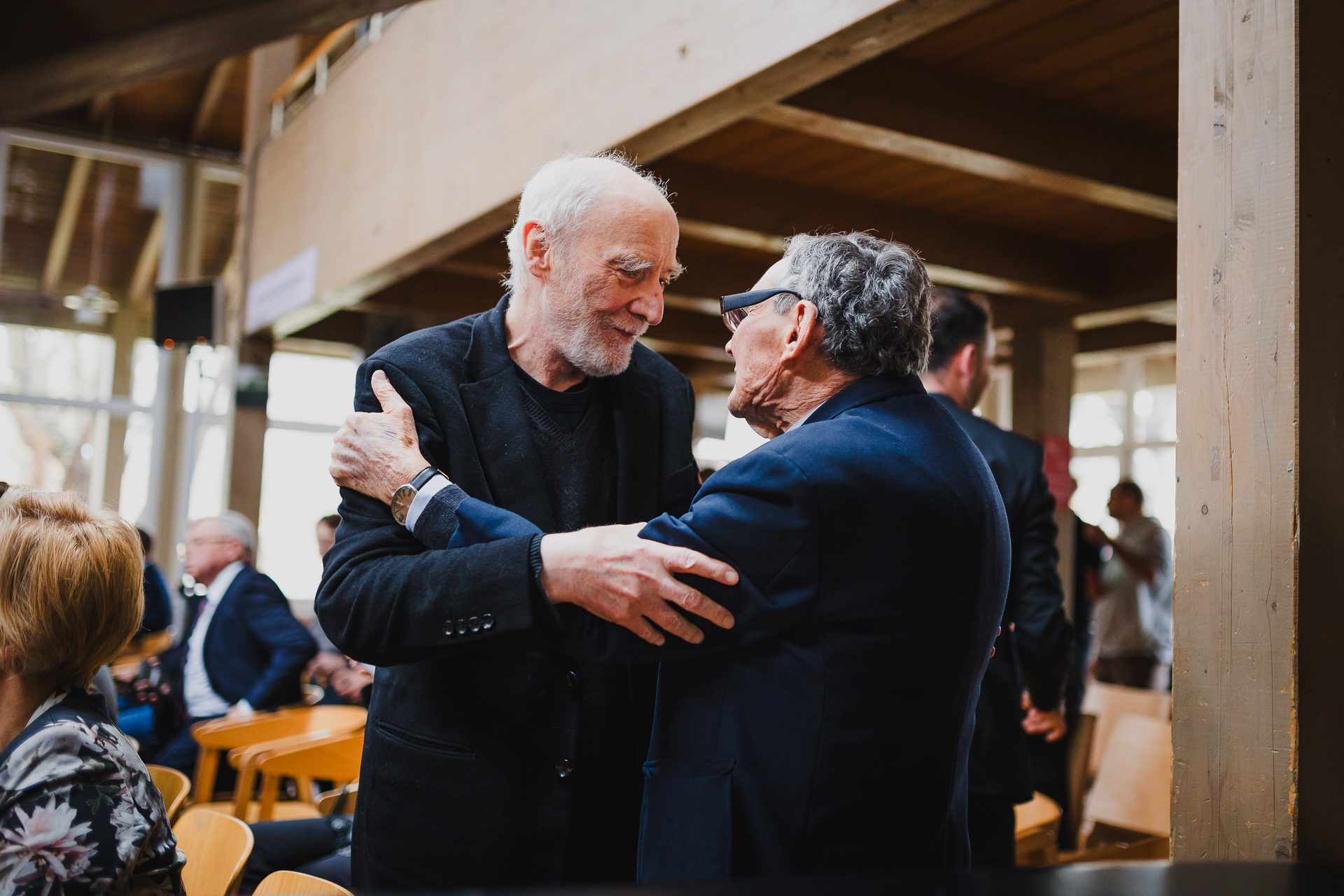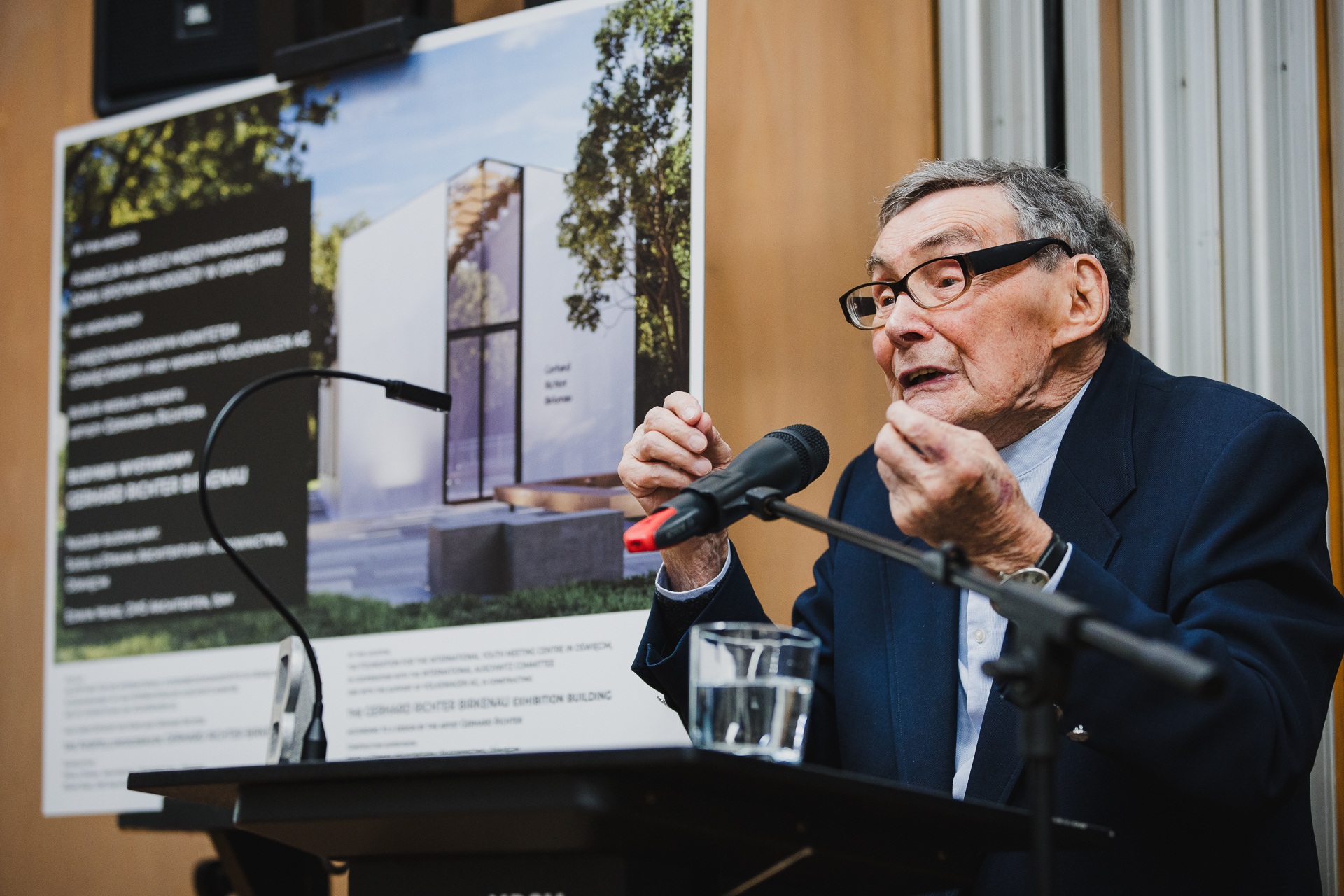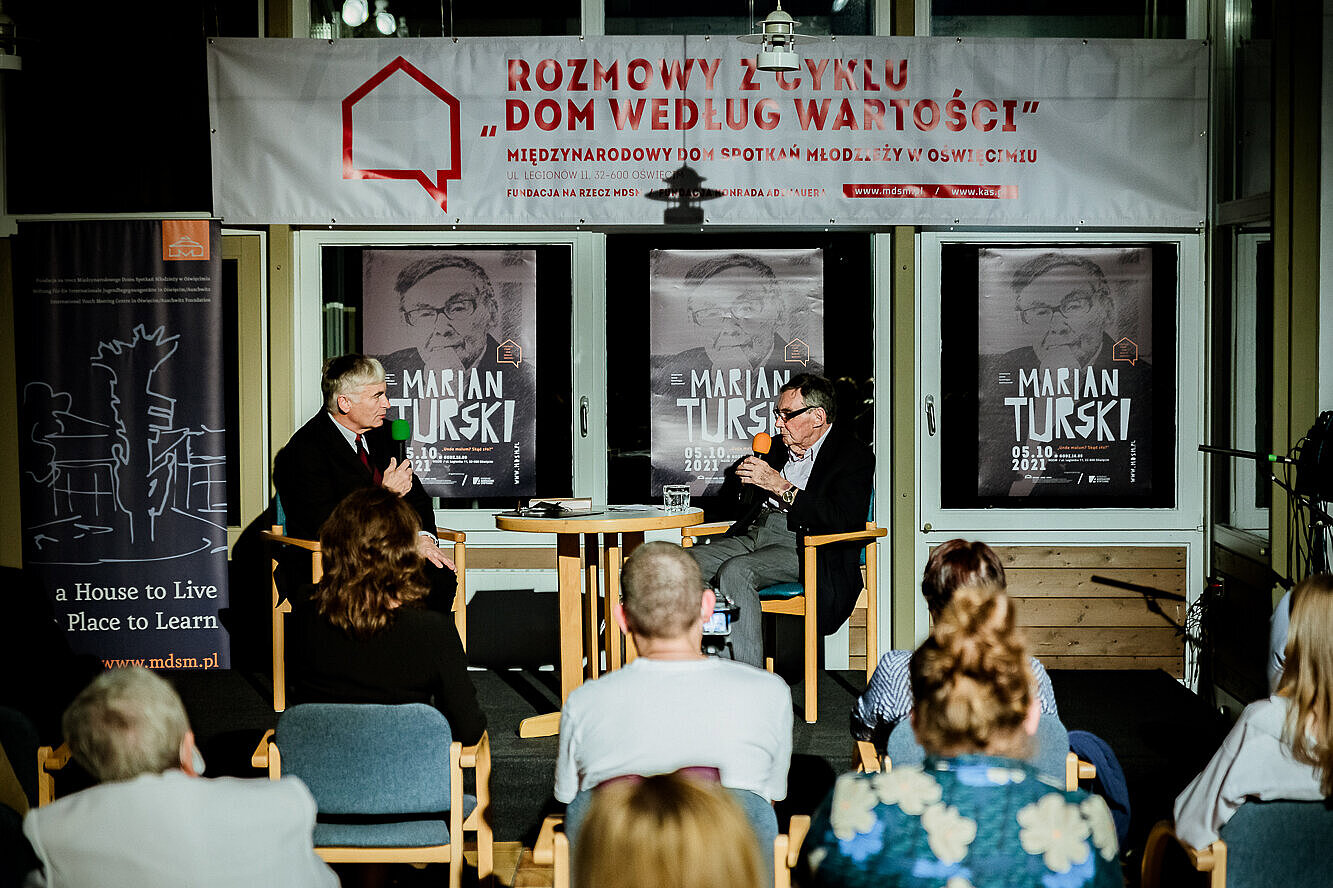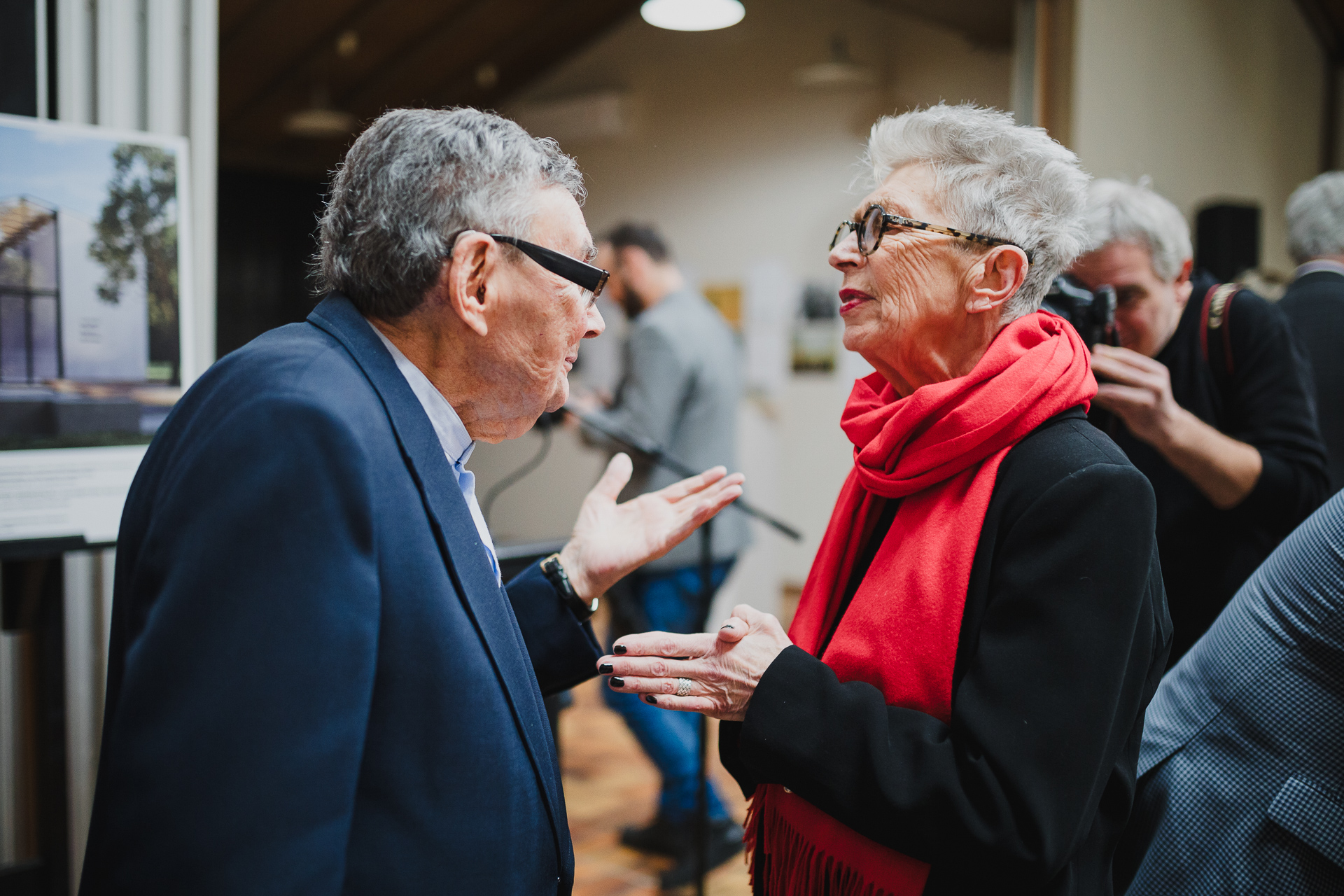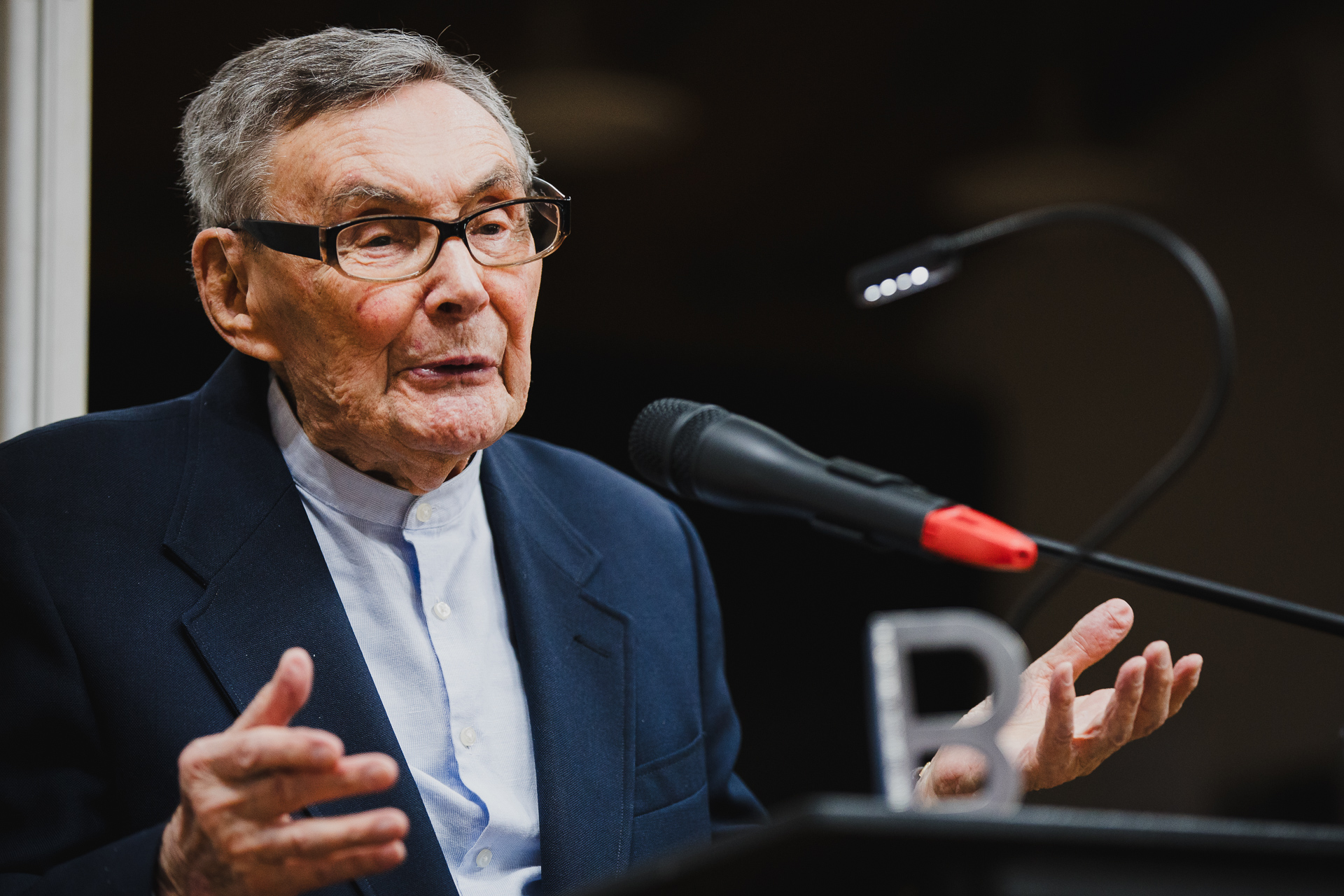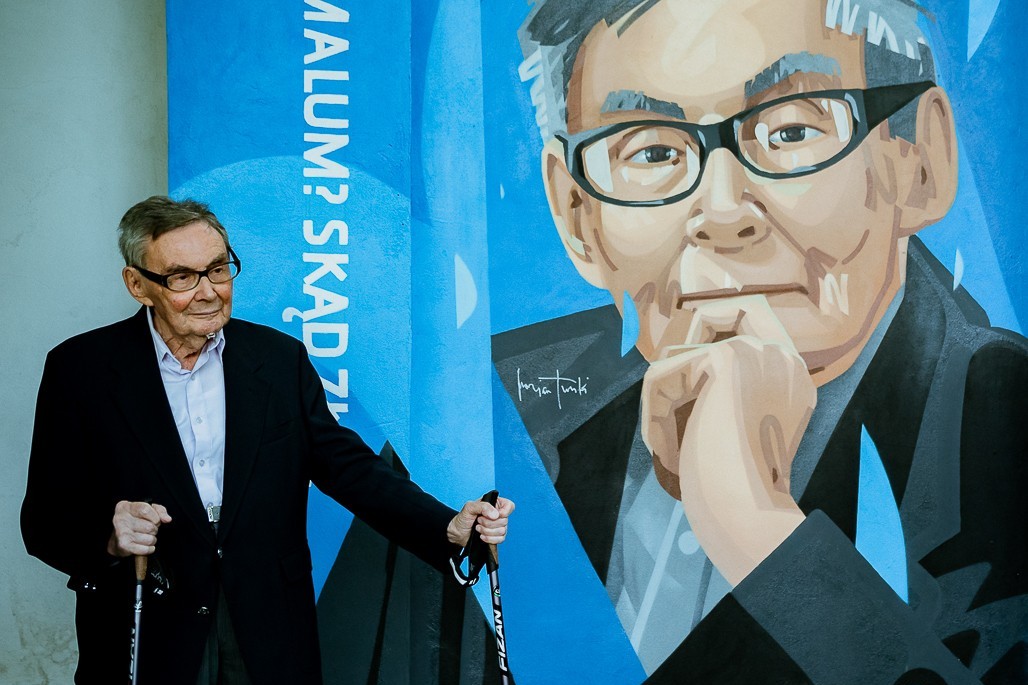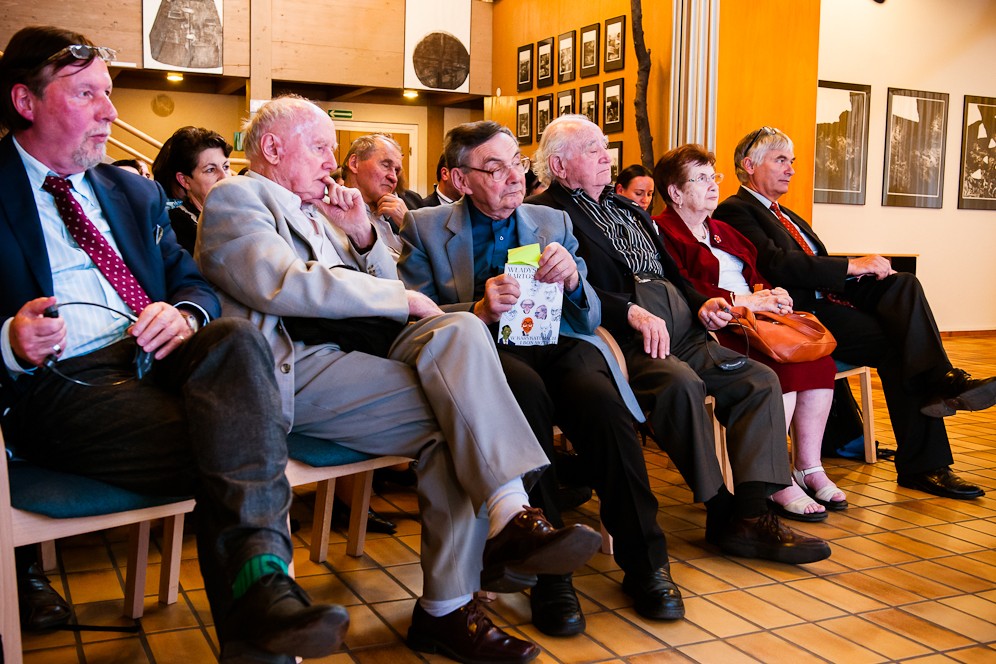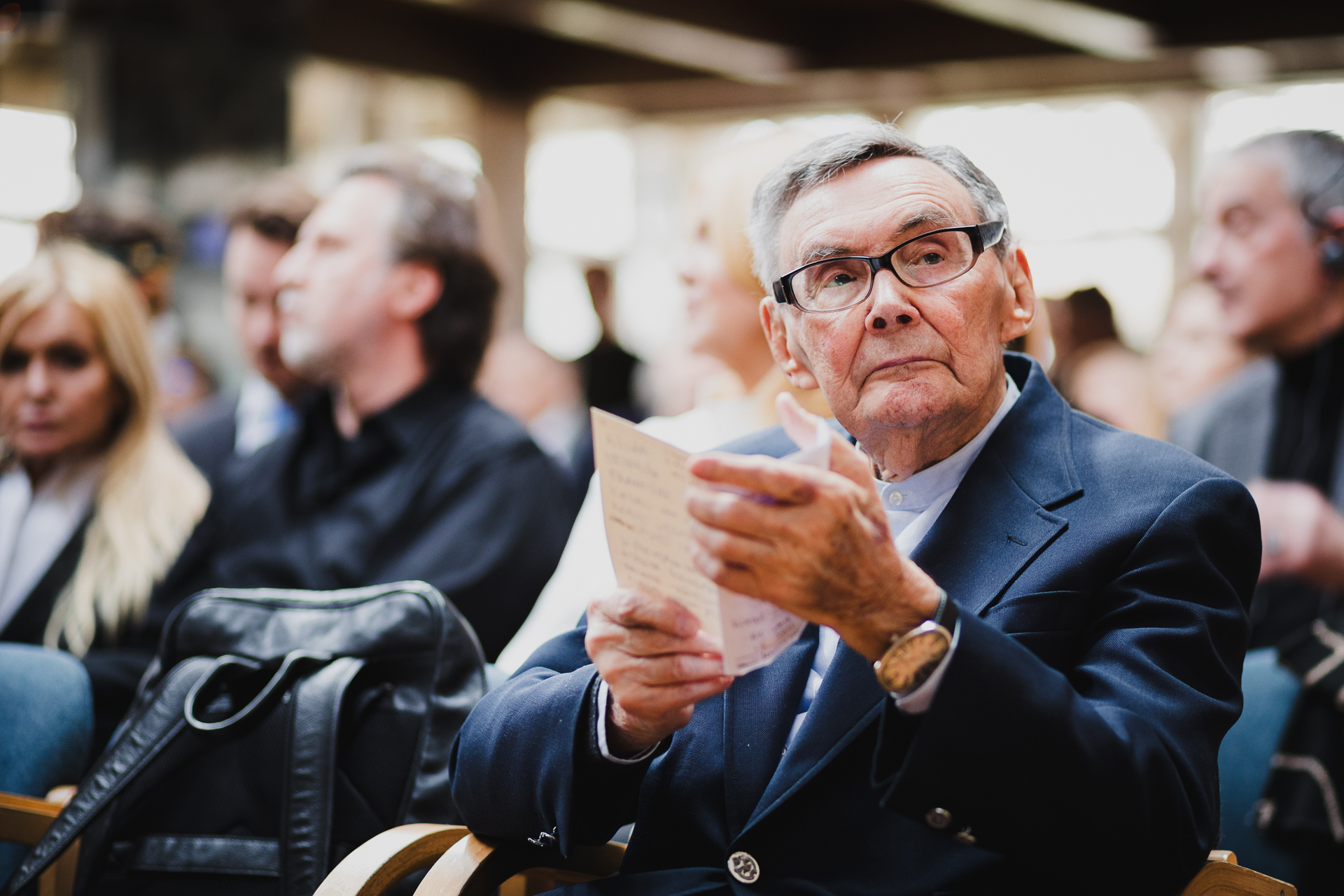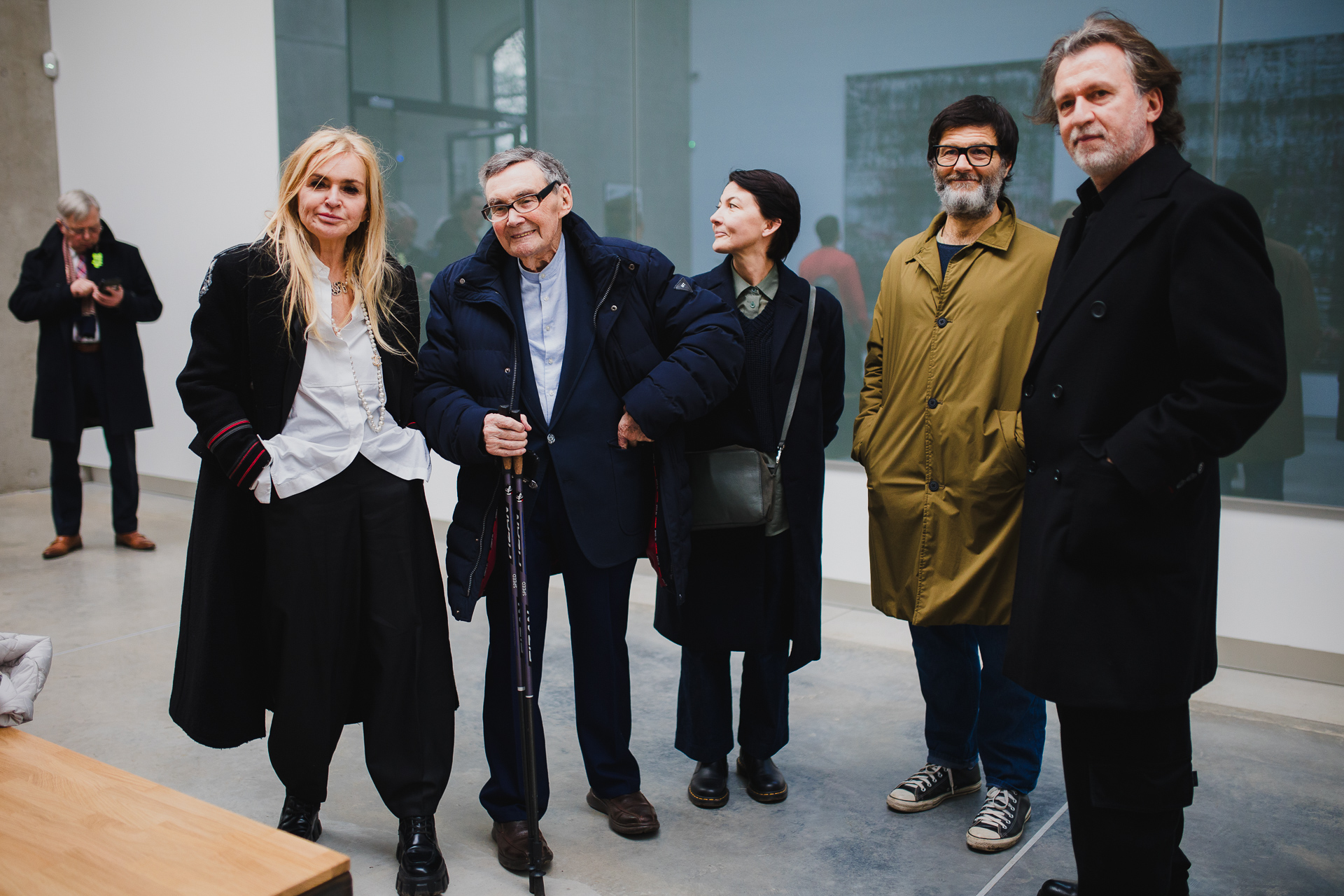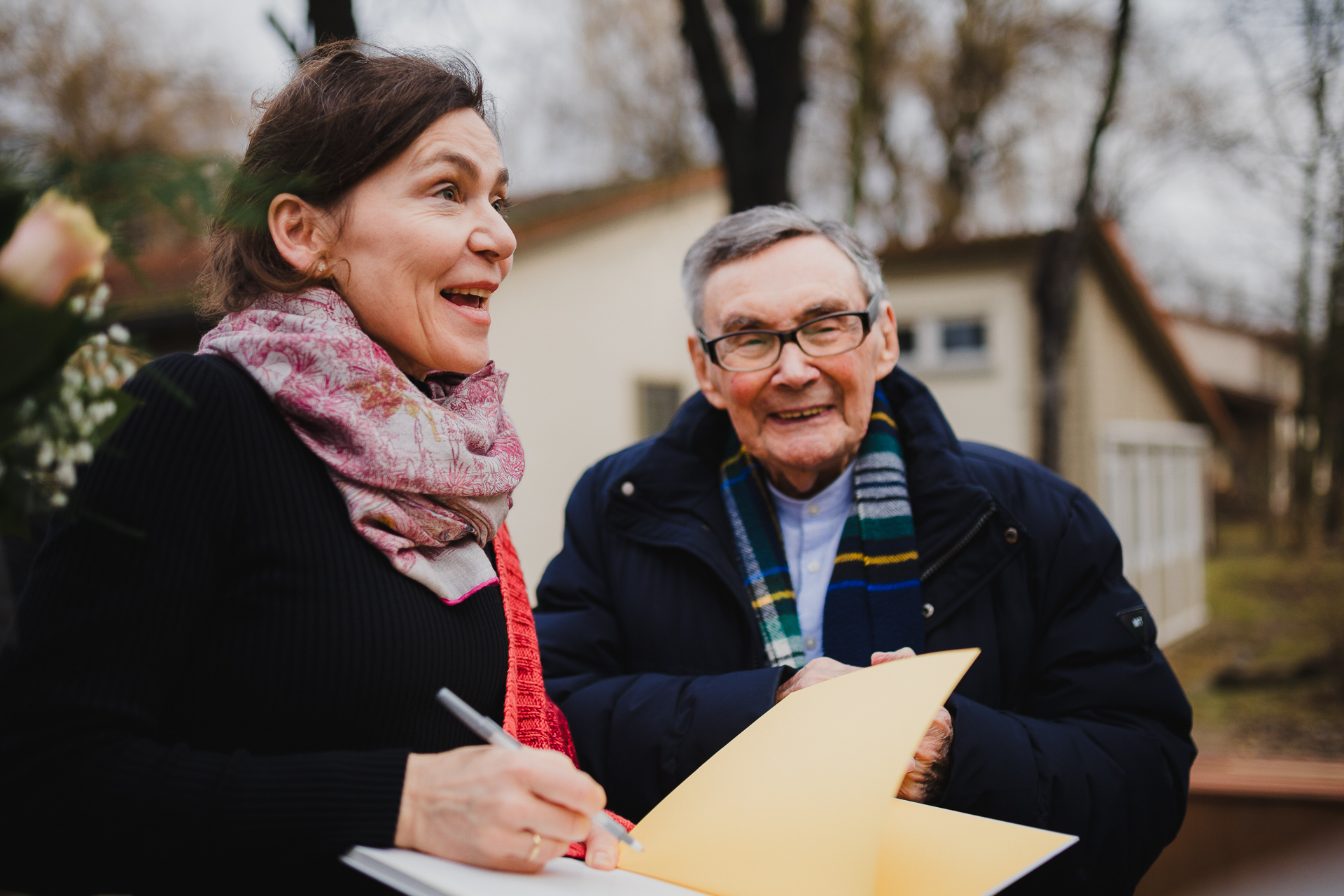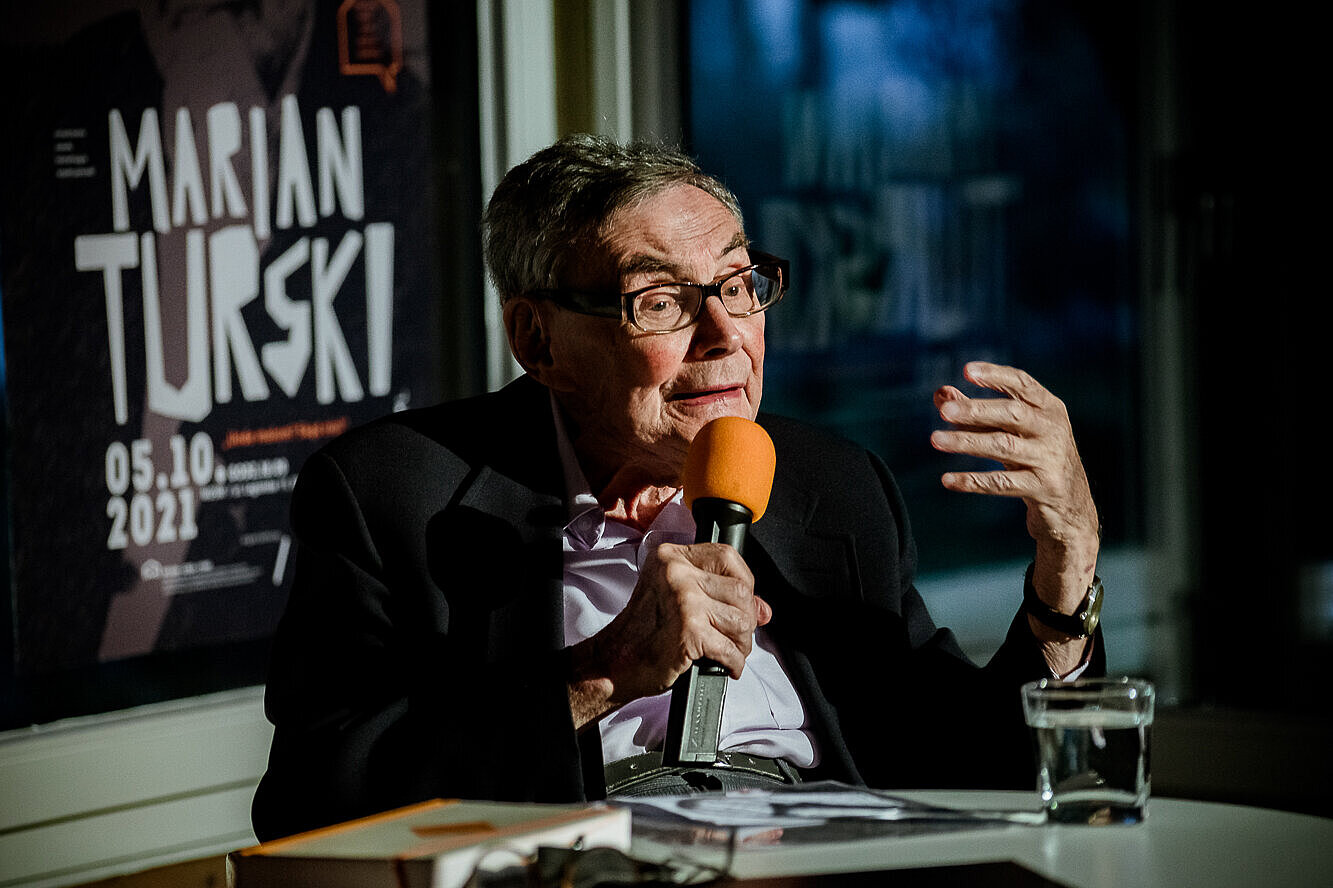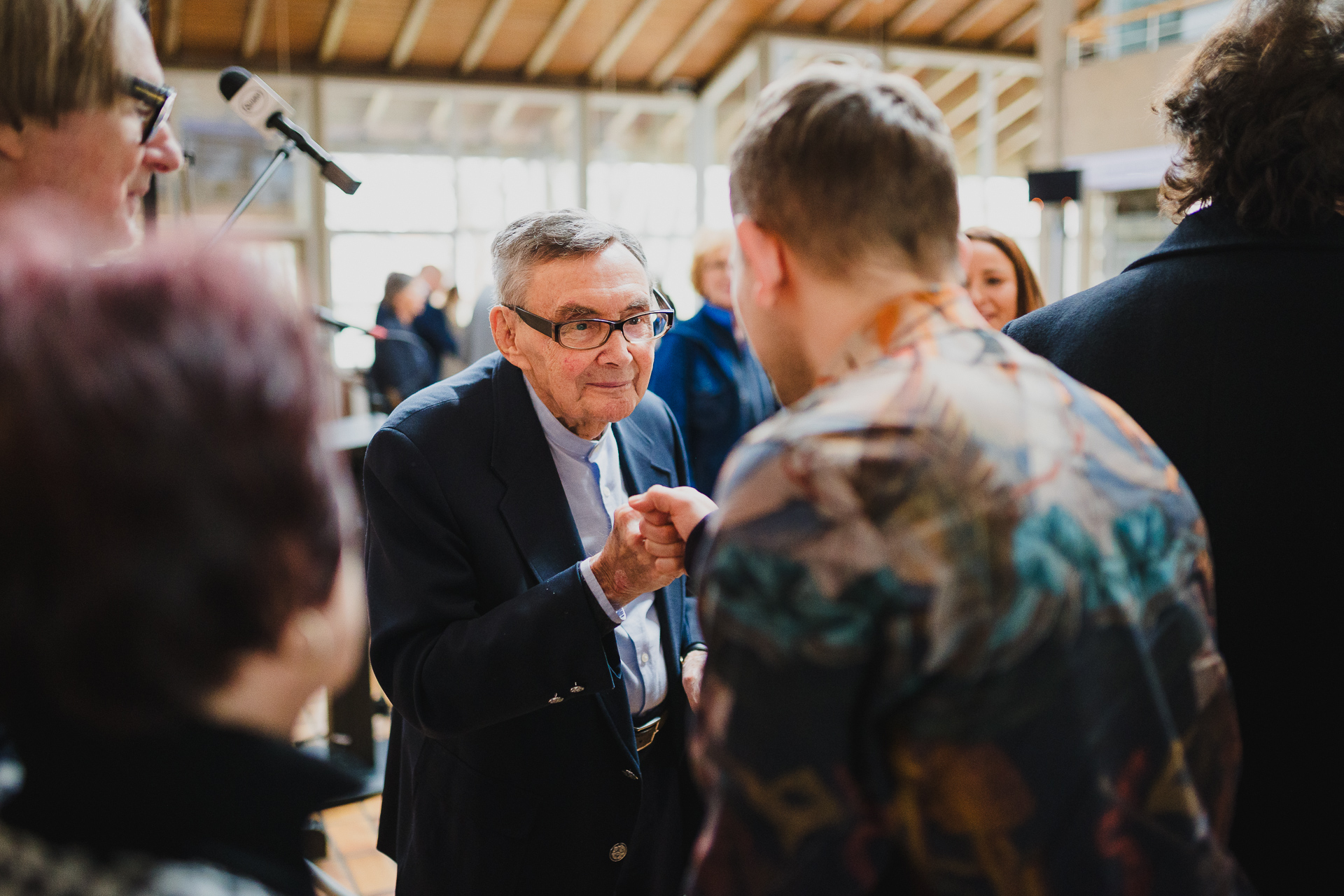Marian Turski 1926-2025
It was with great sadness that we received the news of the death of Marian Turski, a contemporary witness, journalist, social activist, historian and friend of the IYMC. An outstanding man whose voice was heard all over the world has passed away.
Marian Turski was a particularly important person for the Foundation of the International Youth Meeting Centre in Oświęcim and all its employees. A contemporary witness and at the same time a man who was firmly rooted in today's reality, who searched, critically and uncompromisingly defended the truth, shared his knowledge and explained the world. Since the beginnings of the Youth Meeting Centre, he supported its activities and initiatives and was always a welcome guest at numerous meetings, lectures, conferences and projects. In recent years, he supported the initiative to set up the Gerhard Richter exhibition pavilion and the presentation of the ‘Birkenau’ cycle in Oświęcim. He also left us the text ‘My Happiest Day’, a short story published by the IYMC on the occasion of its 25th anniversary, in which we find everything that characterised his life: his thirst for knowledge, his deep interest in other people and their history, his zest for life. We will always remember him.
Marian Turski was born on 26 June 1926 in Druskininkai (now Lithuania). In 1942, he was resettled in the Lodz (Litzmannstadt) ghetto, where he remained until its liquidation in August 1944 and was then deported to Auschwitz. In 1945, he survived the death march to the Buchenwald camp and the march to Theresienstadt, where he witnessed the liberation.
After the war, he became involved in political and social issues. From 1958, he worked for the weekly newspaper Polityka, where he headed the history section for many years. He was actively involved in the activities of Jewish organisations. He was chairman of the Association of the Jewish Historical Institute in Warsaw and a member of the International Auschwitz Council. He also worked on the board of the organisation that runs the House of the Wannsee Conference and on the board of the Museum of the History of Polish Jews. He was President of the International Auschwitz Committee.
His activities and commitment to the commemoration of the history of the Holocaust and the promotion of intercultural dialogue earned him numerous honours and awards.
As a journalist and contemporary witness, Marian Turski followed political events with growing concern until the last days of his life. He was appalled by the Europe-wide rise of anti-Semitic and far-right ideologies and the rhetorical violence with which the proponents of these ideologies attempted to radicalise young people in particular. Nothing drove Marian Turski more in the last months of his life than the words of Auschwitz survivor Primo Levi: ‘It happened, therefore it can happen again.’.
On the occasion of Marian Turski's death, Christoph Heubner, Executive Vice President of the International Auschwitz Committee, emphasised in Berlin:
‘Auschwitz survivors in many countries bid farewell with great pain and infinite gratitude to their friend, brother and fellow sufferer Marian Turski, who was heard all over the world as an effective representative of their memories and as the voice of their murdered relatives.’
May his memory be a blessing

